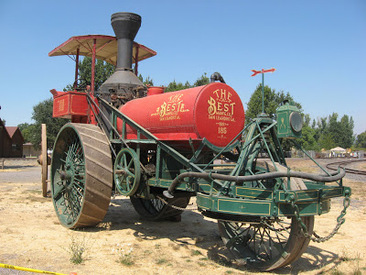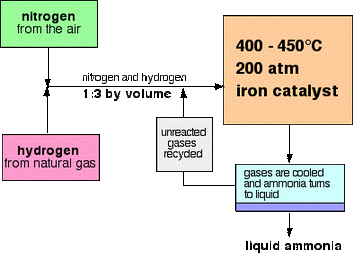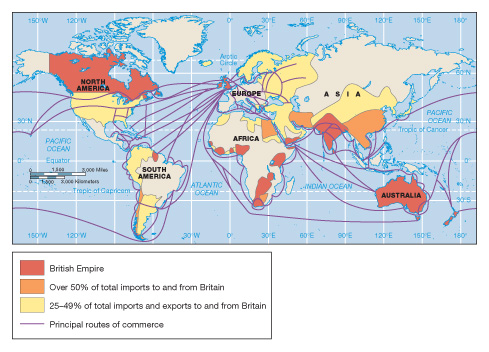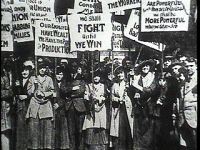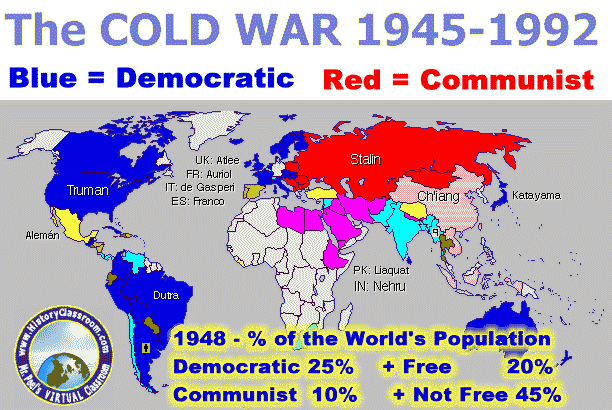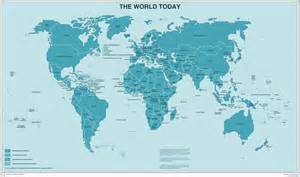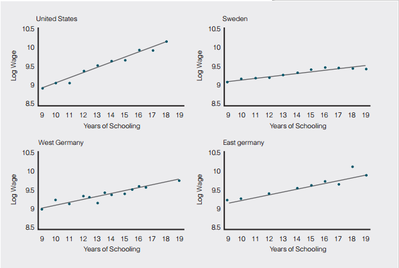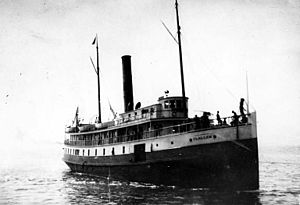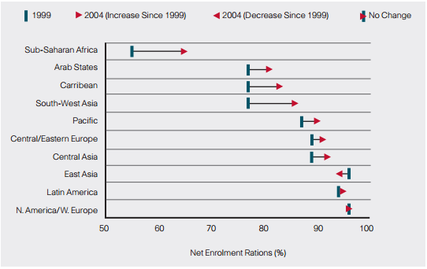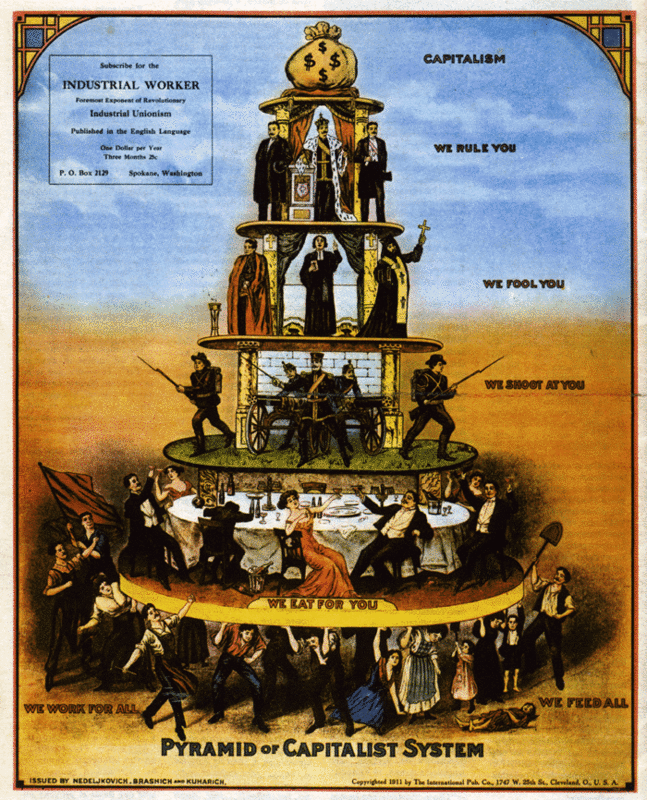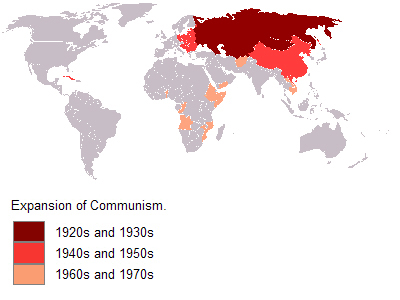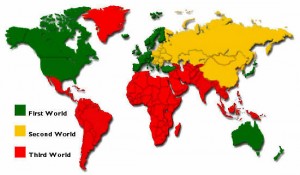AGMSPRITE Analysis
Abigail Hager and Jason McEntire
G. The cause and effects of the change in standard economic policies from the turn of the 19th century through the modern era.
AgricultureA major way economic practices have been affected by agriculture is through higher crop yields. This is highly due in part by the scientific work of Charles Darwin and Gregor Mendel in plant breeding, which set a foundation for an explosion of research and development throughout the 19th and into the 20th century. Mechanization also allowed for higher yields, as it made farms much more efficient. The tractor was especially influential, as it allowed a single person to greatly multiply the work they did in a season. Advances such as this have allowed farms all over the world produce higher volumes of food at what is currently the practical limit. When Badische Anilin und Soda Fabrik (a German chemical company, and the largest in the world) used the Haber process to create ammonium nitrate in 1913, it allowed crop yields to become much greater than ever before. Pesticides are in common use on most farms, but have lately been criticized because of potential hazard to the environment. This has sparked a new trend in organic produce, which is typically more expensive than those grown under pesticides giving it an almost “exclusive” feeling.. Having higher crop yields and the introduction of more expensive produce are major effects agriculture has had on economic activity.
|
GeographyWith imperialism running on its last dregs of fuel, the world begins to settle. Nations are no longer colonizing other territories, and countries become content with their size. Major colonizing countries, such as America, Spain, England, and many others stop receiving money and goods from their former colonies as they become autonomous. However, these countries still need the goods and raw materials that came from their colonies. This means that to get them, they need to trade. This process has begun to split the world into three categories of economic bases. The old colonizing countries become service based, the old colonies become material based, and some outside countries as well as old colonies become production based. Each country still participates in the other two disciplines, but they specialize in one. This separation plays a major role in defining a nations economic principles.
|
MilitaryThe largest Military cause was Imperialism. European nations needed resources and new markets, so they went to poor and non-industrialized areas and took over. By assuming rule, they changed the areas they occupied socially, politically, and economically. The nations that were imperial powers were capitalist nations, so by inhabiting new places, they spread their form of government and economic system. As a result of that process, Capitalism is the most prominent form of economic system today, because of this era.
The effect the new economic systems had on militaries was largely the Cold War. The Cold War was Capitalism fighting against Communism, and the Nuclear Arms Race that followed. Because of this conflict, America and the Soviet Union’s defense spending drastically increased. Military expenditures by the US during the Cold War years were estimated to have been $8 trillion The capitalist reforms issued to pay for that spending resulted in a recession more severe than the US and Germany had experienced during the Great Depression. Moscow had built up a military that consumed 25% of the Soviet Union's GDP at the expense of consumer goods and investment in civilian sectors. Soviet spending on the arms race and other Cold War commitments caused structural problems in the Soviet system, which saw at least a decade of economic stagnation during Brezhnev’s leadership. Gorbachev announced an agenda of economic reform called perestroika in June of 1958. Perestroika relaxed the production quota system, allowed private ownership of businesses and paved the way for foreign investment. These measures were intended to redirect the country's resources from costly Cold War military commitments to more productive areas in the civilian sector. Following the Cold War, Russia cut military spending dramatically. Restructuring of the economy left millions throughout the former Soviet Union unemployed. PoliticalSimilar to the military, the political cause of economic change was imperialism. They politically owned these areas, so they immersed them in the European culture, ensuring that they controlled them socially and economically as well as politically. That led to vast cultural change in the area that they owned
The political effect that the new economic system had was decolonization. Decolonization created many new independent nations that used to be European colonies. The formation of those new nations were created out of European made political boundaries. That led to hostility between people that didn’t want to leave with one another. A great example of this was the splitting of India into Pakistan, India and Bangladesh. This also created new markets. These new nations were capitalist, so they needed to contribute to the global market to survive. They did this by supplying raw resources. Resources from India and Africa were highly desirable for Europe, the Americas, and China. So they sold their raw resources for manufactured goods. This exchange existed previously, now they just do it through the Capitalist or Communist (for China only) market exchange. The new nations also resulted in greater UN and NATO membership. Because of all of these new Capitalist nations emerging, they needed the same protection that the other capitalist nations had, so they joined the UN, increasing its membership and influence over the world. |
SocialThe biggest cause of economic reform was the rise of Socialism. Socialism is social ownership of the means of production and co-operative management of the economy. Cooperative management includes, but is not limited to, cooperative enterprises, common ownership, state ownership, or citizen ownership of equity. It originated from the intellectual and working class movement of the 1700s that criticized the effects of industrialization on society. In the early 1800s, "socialism" referred to any concern for the social problems of capitalism. However, by the late 1800s, "socialism" had come to signify opposition to capitalism and the call for an alternative system based on some form of social ownership. After the abuses and social consequences of Industrialization were realized by the people and the government, a series of reforms occurred.
Those reforms are the effect of economic restructuring during this era. It included many work laws, like the Factory Act of 1883 which limited hours of each work day, ended child labor in factories, and issued better working condition, making factories cleaner and safer. This also includes antitrust laws. In most cases now, Capitalism was the economic system of choice, which heralds that competition between businesses results in lower prices for consumers. It may also encourage businesses to provide a higher quality of goods and services in order to attract customers. When a business is a monopoly, it is the only seller of a particular product or service in its market; without competition from other businesses, it is often able to charge consumers higher prices. Antitrust laws helped prevent companies from becoming too large, eliminating their competition, or being able to fix prices in the marketplace. Social mobility was also a result of economic change in the way of Capitalism. It created a larger middle class and better access to education, ensuring that all citizens had at least equal opportunity to participate in the profit earning industries. Going along with social mobility is the end to slavery. The slave trade ended around 1807, and slavery was abolished almost everywhere by the 1850s. With the new economic systems, capitalism, communism and socialism, slavery was no longer as productive, therefore obsolete. The most modern social effect was the Women’s Suffrage Movement of the 1920s. As men earned money, women left the workforce and returned to their traditional roles. That lessened their influence socially, politically, and intellectually. As wealth accumulated in nations, democratic reforms expanded voting to all men, but left out women. That prompted women to fight for their right to vote. |
IntelligenceIntelligence is based off of how we educate ourselves. The better our education, the more likely it is that we will get a higher paying job. When a country has a skilled workforce due to higher education, its opportunities for economic growth goes up accordingly. “Each additional year of schooling appears to raise earnings by about 10 percent in the United States, although the rate of return to education varies over time as well as across countries” (Krueger and Lindahl, 2001). Alfred Marshall, a 19th century economist, did work to better understand the relationship between individual education and the wealth of a nation (he based some of his work in this area on Adam Smith). Understanding how education impacts and shapes a nation's economy is crucial to being able to maintain one.
EconomyOne of the causes of economic reform was Industrialism. Industrialism created new social classes. Aristocrats were businessmen, the middle class were managers, accountants or lawyers, and the low class were factory workers and farmers. Adam Smith was a big influence on economic change. His Wealth of Nations preached that economic prosperity and fairness is achieved through private ownership. Individuals own the means of production and sell their products and services in a free and open market. SMith was the founder of laissez-faire capitalism. Karl Marx was his opposer, and just as influential. He wrote The Communist Manifesto, which says that the Capitalist working class would eventually revolt and take control of production, which in practice led to State run resource allocation. Marx theorized that they would self govern and pool together all resources, then distribute them equally between all people. This was the basis for Socialism and Communism.
The economic change of this era caused the distinction between the First and Second World. After World War II, the world split into two large geopolitical blocks, separating the world into spheres of communism and capitalism. This led to the Cold War, during which the term First World was highly used because of its political, social, and economic relevance. The First World included any capitalist industrialized countries, most largely America and Western Europe. It also included the capitalist, industrial, wealthy, developed countries that aligned with the United States after World War II. This definition included most of the countries of North America, Western Europe, Australia and Japan. The Second World were communist industrialized countries, like the Soviet Union, China, and some of Southeast Asia. It later included Poland and some of the Turk States, like Khazikstan. |
ReligionReligion was once a great unifying force, used to control entire nations and peoples. It remains a unifying force during the 19th and 20th centuries, but not on quite the same scale as before. People stopped using religion as a basis for their morals and actions. This became more and more of a societal process. Even though religion doesn’t have the same impact it once did, it still has a big influence on individual economic activities. Many religions (though mostly christian faiths) collect tithes from their congregations. Knowing that a percentage of your income will go to your church makes people more careful with how they spend their money, making sure they have enough set aside for their tithes. Now, participation in this act will heavily depend on how frequently someone attends their church services. Someone who doesn’t go often, will not feel as inclined to pay a tithe. People also base their economic activity off of trust. Many communities or markets with a majority religion foster a lot of trust between the people in them. Ultra-orthodox Jews have dominated the New York diamond trade because their is a high level of trust which finds its roots in religion.
TechnologyThe largest technological cause of economic change was the Industrial Revolution. The Steamship and Steam Locomotive resulted in greater production in the industry globally and faster and cheaper transportation. All of those resulted in the expanding of markets which meant greater wealth for capitalist nations, since the majority of the nations contributing globally were capitalist, with the exception of France being socialist. That made capitalism more desirable, simply because they were making profits. The Telegraph, Telephone and Radio has a similar effect. They led to faster communication, which in turn made better production. The spread of ideas means the spread of wealth and markets. The more places to sell goods, the more wealth capitalist nations had. That made Capitalism more desirable to non-capitalist developing nations, making them more likely to be capitalist.
The Internet is the most recognizable technological cause of economic change in this era. Digital Economy refers to an economy that is based on digital technologies. The digital economy is also sometimes called the Internet Economy. Increasingly, the “digital economy” is intertwined with the traditional economy making a clear delineation harder. In this new economy, digital networking and communication infrastructures provide a global platform over which people and organizations devise strategies, interact, communicate, collaborate and search for information. For example banks are trying to innovate and use digital tools to improve their traditional business. Governments are investing in infrastructure. The Australian National Broadband Network, for instance, aims to provide a 1 GB/sec download speed fibre based broadband to 93% of the population over ten years. |
